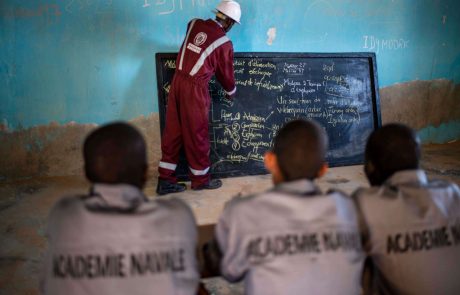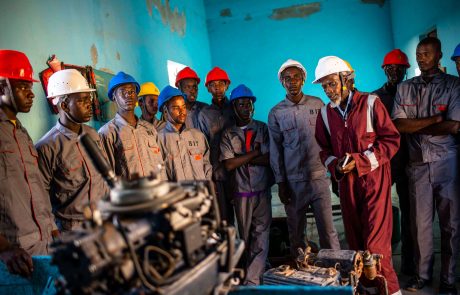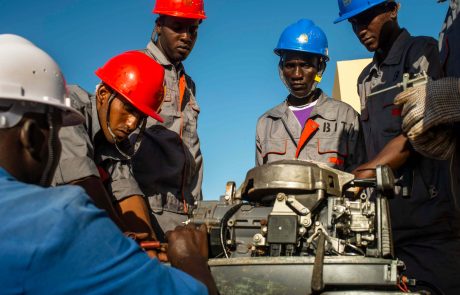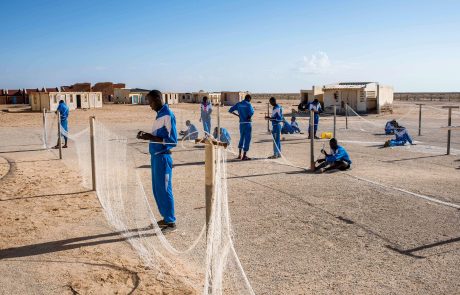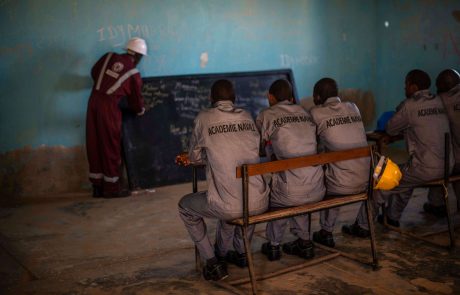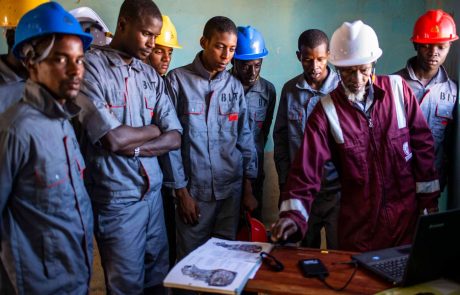The PECOBAT project aims to improve the employability of young people and their integration in a promising employment niche: bioclimatic construction using local materials in the southern wilayas of the country.
The project also aims to promote private sector and sustainable economic activities in the trades of earthen masonry. Mauritania is a Sahelian country with poor climate conditions and overall low rainfall in the country, therefore leaving low prospects for developments for many economic sectors. The project contributes to the country’s decent work program, by implementing a labor-intensive approach in the building and public work sector.
More generally, PECOBAT aims to contribute to regional stability and a better management of migration by addressing the root causes of instability of forced displacements and of irregular migration. Trainings provided are directed towards young people who receive training in a professional environment conducive to learning, insofar as it combines theoretical teaching and a strong practical component. Through this, the project aims to increase the opportunities for socio-professional integration of young people and SMEs in the target areas through the development of vocational training in the construction sector using local materials.
What methods will be employed?
Initially, C4ED proposed and designed a counterfactual impact evaluation (CIE) relying on a Difference-in-Difference (DiD) approach with Propensity Score Matching (PSM) to determine the impact of PECOBAT. However, program changes resulted in a reduction in the number of expected beneficiaries to less than 100 youth. Consequently, the final methodological approach will consist of the comparison of trends of mean outcomes for beneficiaries and similar non-beneficiaries, with small-sample adjustment via PSM.
The insights from this quantitative descriptive analysis will be further complemented by qualitative data through a mixed methods approach. The study sample will involve youth selected through the project recruitment processes who will be matched with youth who applied to participate in the project but were not selected. Study participants in both groups will be asked to take part in a baseline survey.
Baseline surveys will be conducted gradually as each new cohort is recruited. A midline survey will be organized for each cohort up to 10 months after intervention baseline. About 18 months after baseline, an endline survey will be conducted for each cohort to assess key outcomes. Data from different cohorts will be merged for analysis. Qualitative data collection will also be undertaken to gain insight into the contextual mechanisms which drove the change observed in the descriptive analysis.
The quantitative analysis will track outcomes of beneficiaries over time and compare these to the outcomes of similar non-beneficiaries during the entire evaluation period to examine if beneficiaries and non-beneficiaries experience different patterns for several outcome variables. Design constraints from small sample size limit the study from detecting programme effects, therefore a mixed-methods approach will be used where insight from qualitative interviews will provide complementary contextual information for interpretation of the descriptive quantitative results.
The design of the PECOBAT project allows only for a small sample size, limiting the study’s statistical power from detecting program effects. Therefore, a mixed-methods approach will be applied where insight from qualitative interviews will provide complementary contextual information for interpretation of the descriptive quantitative results. The descriptive analysis will track outcomes of beneficiaries and similar non-beneficiaries during the entire evaluation period to examine if beneficiaries and non-beneficiaries experience different patterns for several outcome variables. Using propensity score matching, we will identify non-beneficiaries similar to the project participants.


